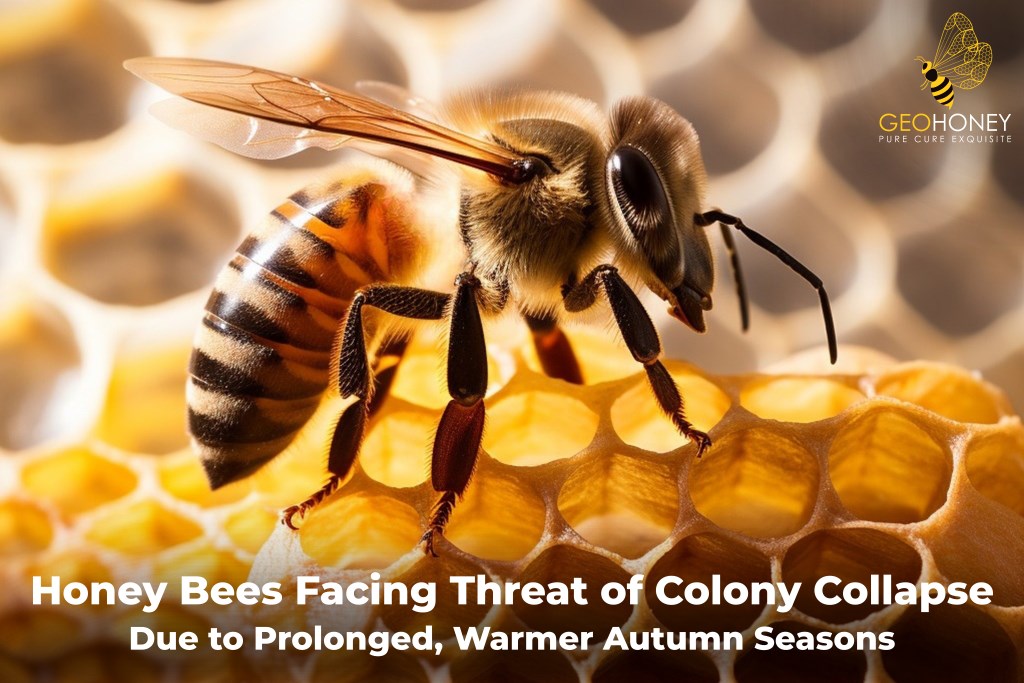- Tokyo: 07:59
- Singapore: 06:59
- Dubai: 02:59
- London: 22:59
- New York: 17:59
Honey Bees Facing Threat of Colony Collapse Due to Prolonged, Warmer Autumn Seasons

Recent research has shed light on a concerning trend for honey bees as longer and warmer fall seasons pose a risk of colony collapse. The diligent work ethic of these essential pollinators, combined with climate change effects, could have detrimental consequences for bee populations.
The study, detailed in Scientific Reports and spearheaded by lead author Kirti Rajagopalan from Washington State University, focused on the Pacific Northwest region but carries implications for honey bee colonies nationwide. Researchers utilized climate and bee population models to demonstrate how extended autumns with favorable flying conditions lead to a higher likelihood of colony collapse come springtime.
Worker honey bees, driven by their instinct to forage for food whenever temperatures permit, face challenges as they age prematurely due to excessive flying. This behavior depletes their energy reserves and ultimately weakens the colony structure. The simulations conducted projected that colonies wintering outside in various regions would experience significant declines in adult bee populations, which could trigger collapses in both short-term and long-term scenarios.
To counteract this alarming trend, the researchers explored a potential solution: placing honey bee colonies in indoor cold storage during the fall and winter months. This strategy aims to prevent premature aging and depletion of worker bees, thus safeguarding the overall health and stability of the hive. By clustering indoors, bees can conserve energy and resources, leading to a more robust population come spring.
The study highlighted that while honey bee colonies in colder regions like Omak may fare better under climate change, those in areas such as Richland face a stark decline in hive populations if left outdoors during winter. By implementing cold storage practices, hive populations could see a significant boost, ensuring their survival and productivity in the face of changing environmental conditions.
Moreover, the research emphasized the importance of proactive measures to mitigate the impact of climate change on bee populations. Cold storage, a method gaining traction among commercial beekeepers, not only aids in managing bee health but also offers logistical benefits for hive transportation and pollination activities.
In conclusion, the findings underscore the urgency of addressing the challenges faced by honey bees in the wake of climate change. By implementing innovative strategies such as cold storage, beekeepers can play a crucial role in preserving these vital pollinators and ensuring the sustainability of bee populations in the future.
Source: eurekalert




Might spell disaster to this crop pollinators.